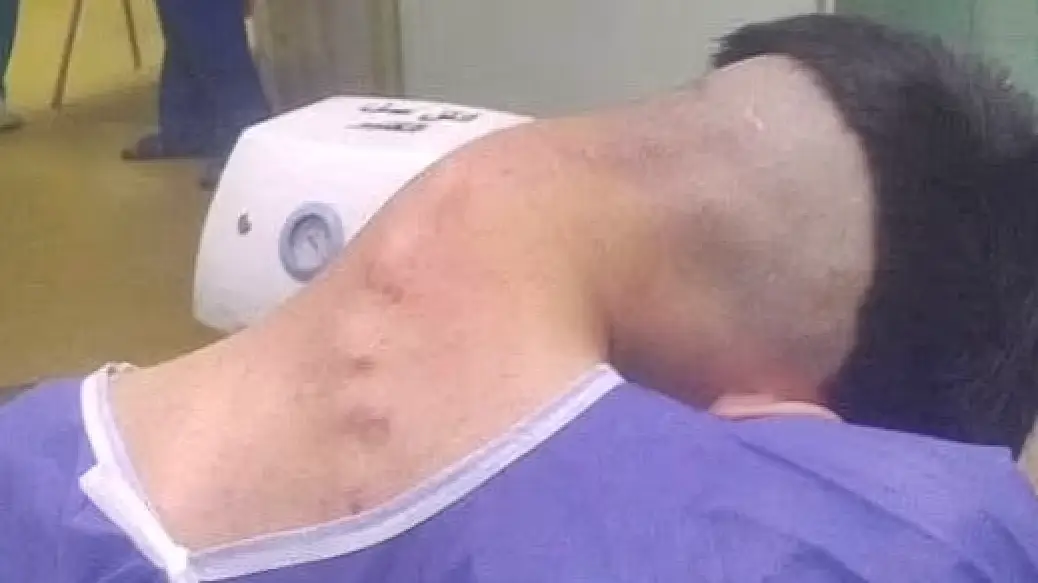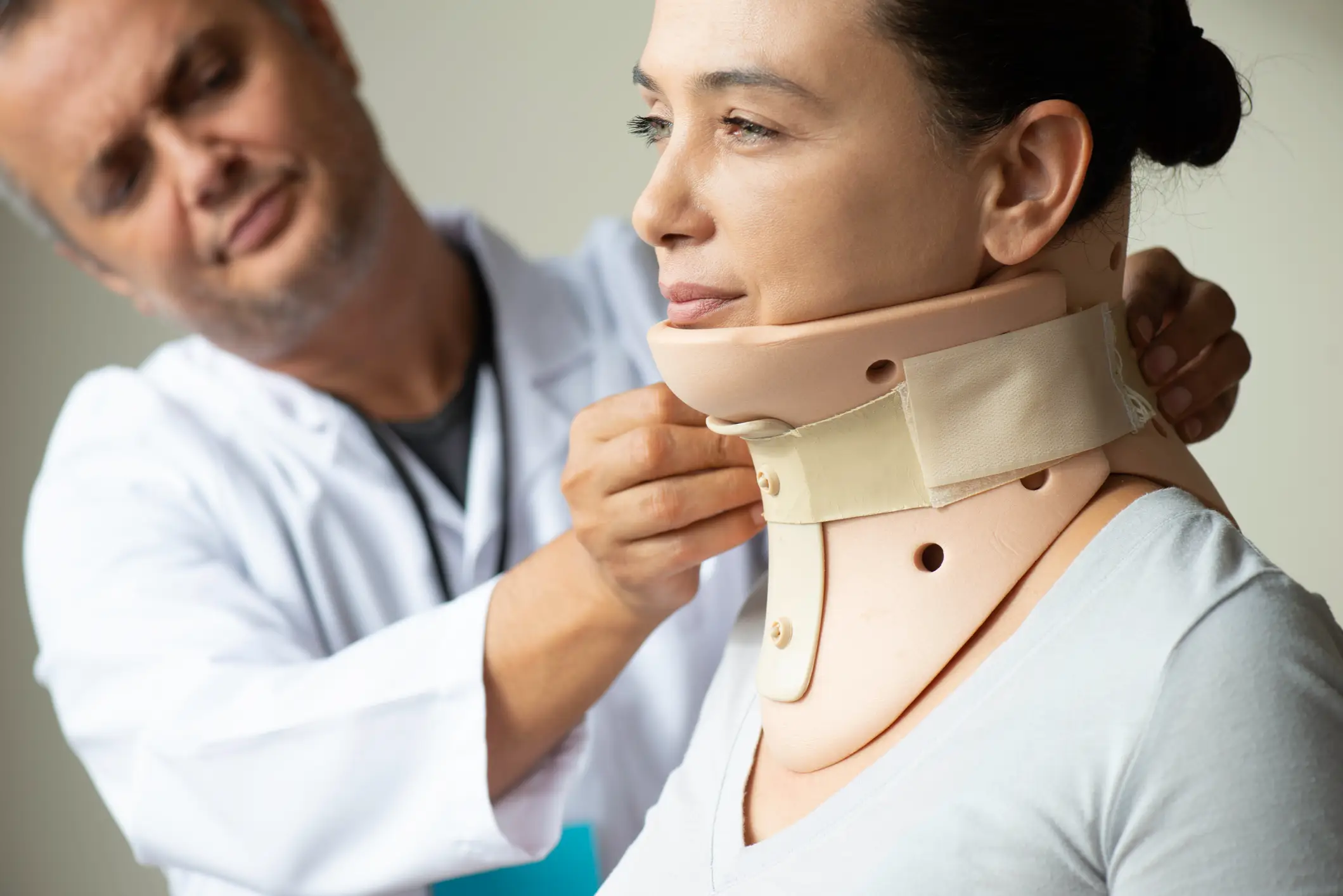
Warning: This article contains discussion of drug addiction which some readers may find distressing.
A man who struggled through years of substance abuse developed a terrifying condition known as dropped head syndrome.
The 23-year-old, who has not been named, was pictured by doctors in Iran, who captured the alarming state of his neck, which could no longer support his head after what is believed to be several years of substance abuse.
He was left with an extreme bend in his neck after regularly taking a dangerous combination of different drugs, with the medics reporting that his use of amphetamine (also known as speed) triggered a 'fixed kyphotic neck position', where his chin would fall to his chest for long periods at a time.
Advert
While you would normally expect serious neck trauma to lead to a situation as scary as this, as we have seen with cases of 'internal decapitation' in the past, it seems as if the young man's health issues arose entirely from his abuse of the class A drug heroin, as well as opium and speed.
The doctors found that prior to his history of drug use, there was nothing to suggest that this severe neck misalignment would occur.
Dr Majid Rezvani, co-author of the case study, said: "We discovered that drug abuse contributed to the uncommon development of severe complicated cervical kyphosis [excessive rounding of the upper back].'
"The drug does not have a direct effect on musculoskeletal changes', he explained.
"Instead there is an indirect effect: when the patient uses the drug, they remain in a certain position for a long time, and over months this results in musculoskeletal changes that led to kyphoscoliosis."

It is reported that the man was struggling with symptoms for around 15 months and tried to remedy this himself, but eventually he sought out professional help.
A CT scan revealed that he had a severely deformed spine and doctors noted that his situation did improve slightly when he was put under general anaesthesia.

However, they weren't able to find a quick fix and decided that surgery to remove the deformed bone was the man's best option.
Fortunately, this story has a positive ending, as he was able to walk a day after the surgery was completed, with the help of a lock collar, which he would wear for another three months.
In that time, he also attended rehab to help his drug addiction, with doctors satisfied that his spine has been repositioned correctly after seeing him again a few months later.
If you want friendly, confidential advice about drugs, you can talk to FRANK. You can call 0300 123 6600, text 82111 or contact through their website 24/7, or livechat from 2pm-6pm any day of the week
Topics: Health
